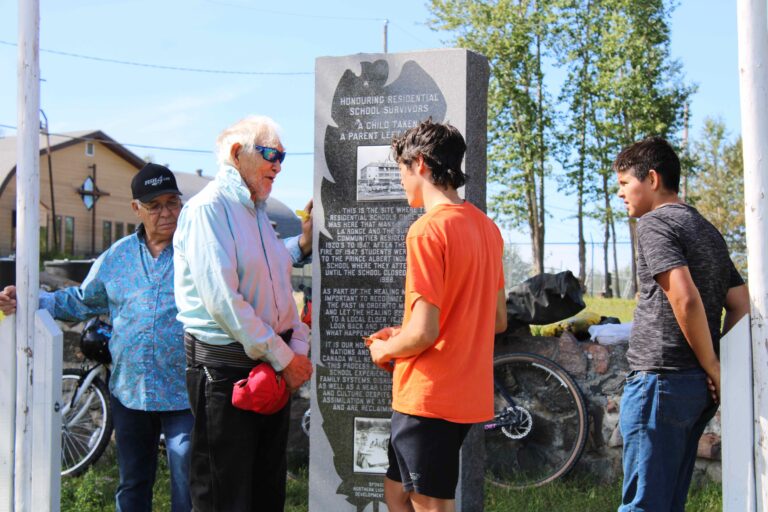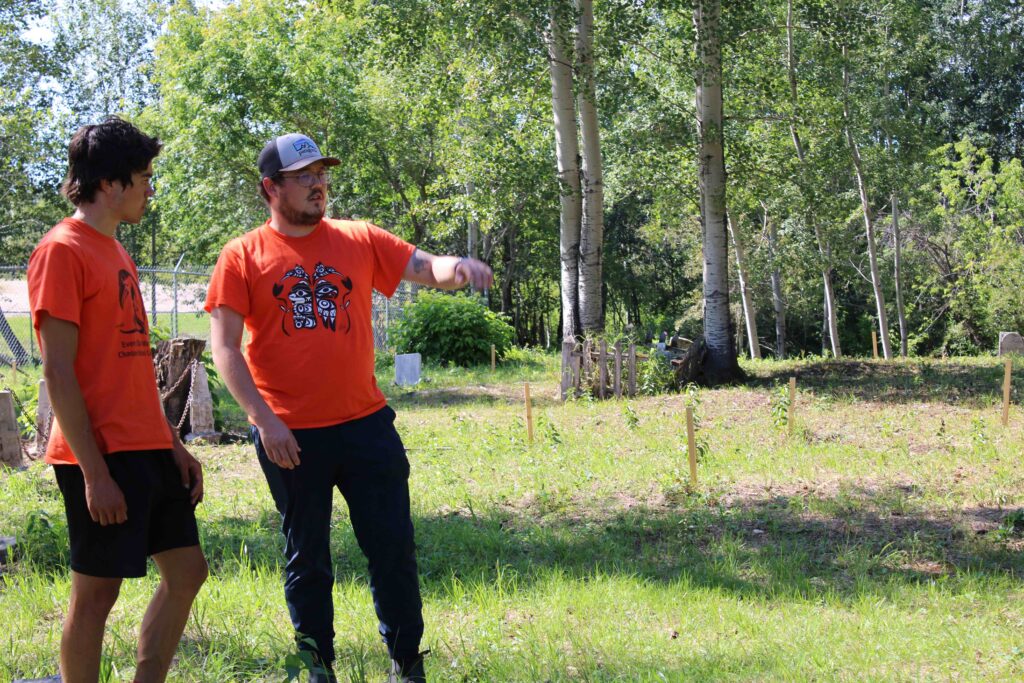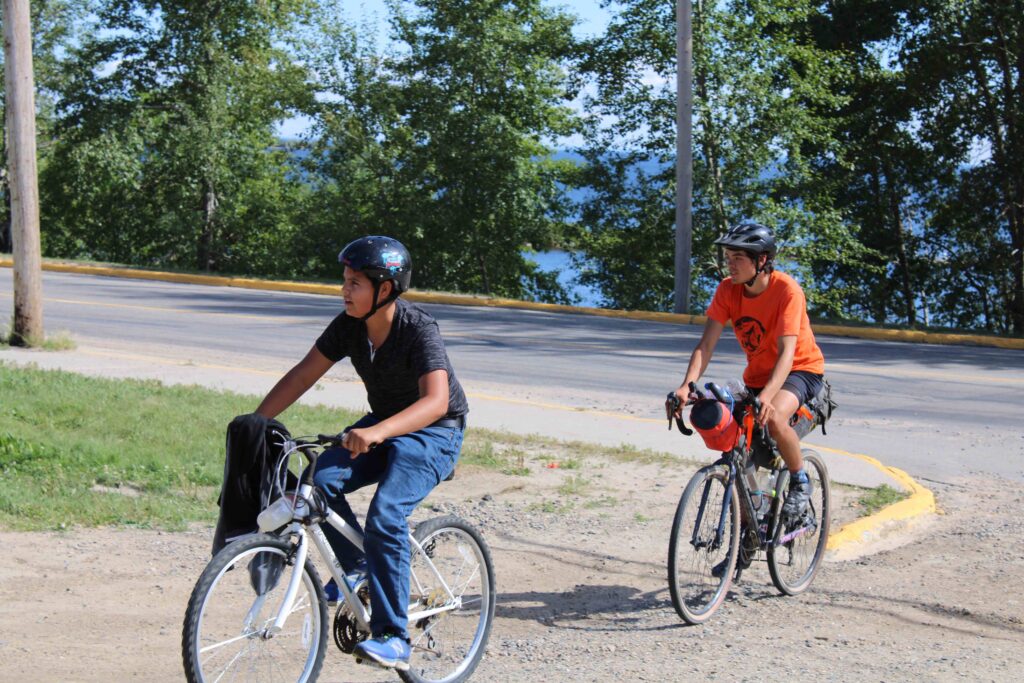
Warning: This story contains details that can be upsetting to readers
Saskatoon cyclist B’yauling Toni brought 20 pairs of moccasins made by children and youth in Saskatoon and delivered a pair to every federally recognized residential school in Saskatchewan in August.

“I’m a settler to this land and I think it’s really important that I start to recognize the genocide that happened here on Canadian soil and to open a conversation with non-Indigenous people about that genocide,” Toni said.
“We need to be here to support the long healing process for Indigenous people and it starts with recognizing and educating ourselves to the wrongs that happened.”
Across Canada the residential school system separated at least 150,000 Indigenous children from their families — until the last one closed its doors in 1996.
Recent ground penetrating radar technology has brought many previously unmarked graves at the sites of former residential schools to light prompting a national reckoning with the impacts of colonialism on Indigenous people in Canada.
“I think that as individuals we should all strive to be actively participating in reconciliation. I’m a cyclist and that’s my platform so I’m going to use that platform to participate in reconciliation,” Toni said.
“It’s been a lot of learning, very quickly and very intense, but one thing that stands out is how amazingly welcoming the people are, and how generous the communities are – they’ve all welcomed me with such generosity.”
Young La Ronge resident Colin Ross escorted Toni to the site of a former residential school in La Ronge where gifts were exchanged. Ross said he waited a while for Toni to get there.
“I waited quite a while, like two hours,” Ross said.” We talked about why he was doing it and I told him a little bit about living here. It was fun.”

Toni’s non-profit tour of Saskatchewan is called Moccasins for Remembrance. Donations help the Orange Shirt Society raise awareness across Canada about the residential school system.
The moccasins are his way of paying respects to the children who lived and died at residential schools in Saskatchewan and spreading awareness.
“It’s all about remembering the children who didn’t make it home and the survivors of residential schools. For non-Indigenous people it’s so important to try to be educated to begin with about what happened because without education there can be no empathy,” Toni said.
“So that’s the first step is to become educated and become aware and to go forward and to try to learn with an open mind and then once you learn you can apply that in life.”
Toni’s journey took him from Saskatoon, north to La Ronge by way of Flin Flon, through Beauval into the northwest and then back to Saskatoon by way of Prince Albert.
A national 24-hour Indian Residential School Crisis Line is available to support survivors and those affected. You can access emotional and crisis support referral services by calling 1-866-925-4419.
